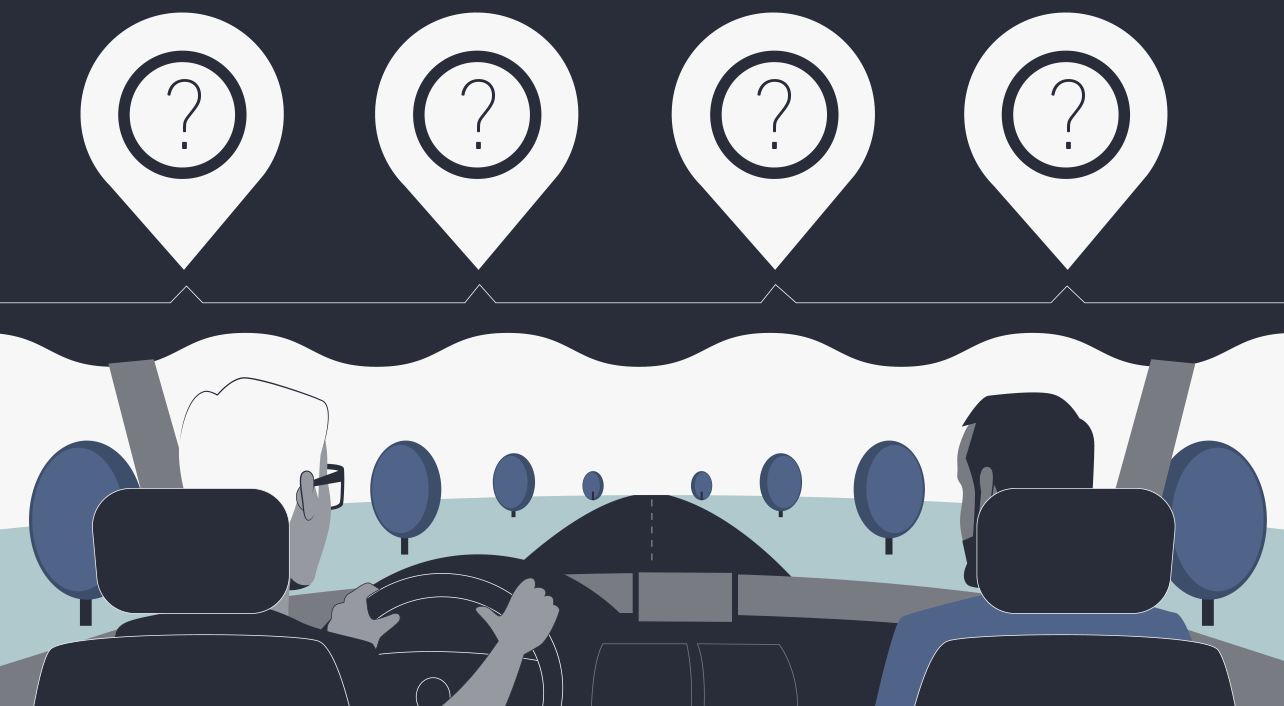- leadership
- Blog post
A coach should ride shotgun, not hog the driver’s seat
If you’re a leader within your organization, it’s probably in large part because you have a skill set that enables you to do a lot of things right. Low performers don’t usually get promoted.
And that’s fine as far as it goes. But when it comes to coaching others, your high performance orientation may send you down the wrong road.
Consider this scenario: Iris is new on Salim’s customer service team. One day he hears her struggling to handle an irate caller and sees a perfect coaching opportunity. “Transfer the call to me, then listen,” he whispers. Salim calms the customer and even gets a new order. After, he asks Iris if she followed what he did. “Yes, that was awesome,” she replies. But in the coming days several more calls go badly. Iris feels defeated.
Salim meant well. He thought that if he took the driver’s seat in that live call and modeled the way, Iris would be able to replicate what he did. But she couldn’t. Why?
Learning by doing
Because people learn best by doing, not merely by watching others. This has to do with the concept of ownership. Psychological studies show that when people “own” their learning, they build confidence and competence. But ownership happens only when people master a skill through trial and error, as they hit obstacles, experience frustration, make course corrections, devise creative solutions, and start accumulating successes.
Salim is a competent person who feels he’s at his best when he takes the wheel and does things right. But that’s not what coaches do. To get results through other people, Salim needs to try what we call “GPS coaching,” which is about giving people guidance, but doing it from the passenger seat, not the driver’s seat.
GPS coaching gives people a sense of ownership and insight, not only of specific tasks but also of their overall learning goals, their core competencies, and the gaps between where they are and where they want to go.
GPS questions
Here are four GPS coaching questions Salim might ask Iris in order to frame a learning journey that she truly owns.
“Where do you want to go?”
Asking this question engages Iris’s imagination. She might say, “I want to have the highest customer service scores on the team,” which puts her struggle with irate customers in the context of a meaningful learning journey.
“Where are you now?”
Like a GPS, Salim knows Iris is a little off course. But he wants to make sure she knows it. Imagine Iris replied, “I think I’m doing fairly well.” Salim could redirect her thinking, ideally using data showing that her performance wasn’t all it could be. He might ask, “What skills do you think you need to improve?” One would certainly have been her ability to de-escalate difficult calls.
“How will you get there?”
Iris now understands she needs a course correction. Rather than propose a solution, Salim “leads from the side” and asks her to come up with several options that would help improve her customer satisfaction scores. He wants these action steps to come from Iris, not himself.
“How can we work together to help you?”
Salim can offer to help Iris in her learning journey. But he can go farther, asserting his right to hold her accountable. That includes having a say in how she executes her improvement plan. For example, he might ask for weekly check-ins to gauge progress, or ask Iris to engage in role-play sessions to sharpen her skills.
This blog entry is adapted from the Rapid Learning module “GPS Coaching: Get Out of the Driver’s Seat and ‘Guide From the Side’.” If you’re a Rapid Learning customer, you can watch the video here. If you’re not, but would like to see this video (or any of our other programs), request a demo and we’ll get you access.
The blog post and Rapid Learning video module are based in part on the following scholarly article: Pierce, J.L. et al. (2001) Toward a Theory of Psychological Ownership in Organizations. Academy of Management Review, 25(2) 298-310.

Get a demo of all our training features
Connect with an expert for a one-on-one demonstration of how BTS Total Access can help develop your team.



